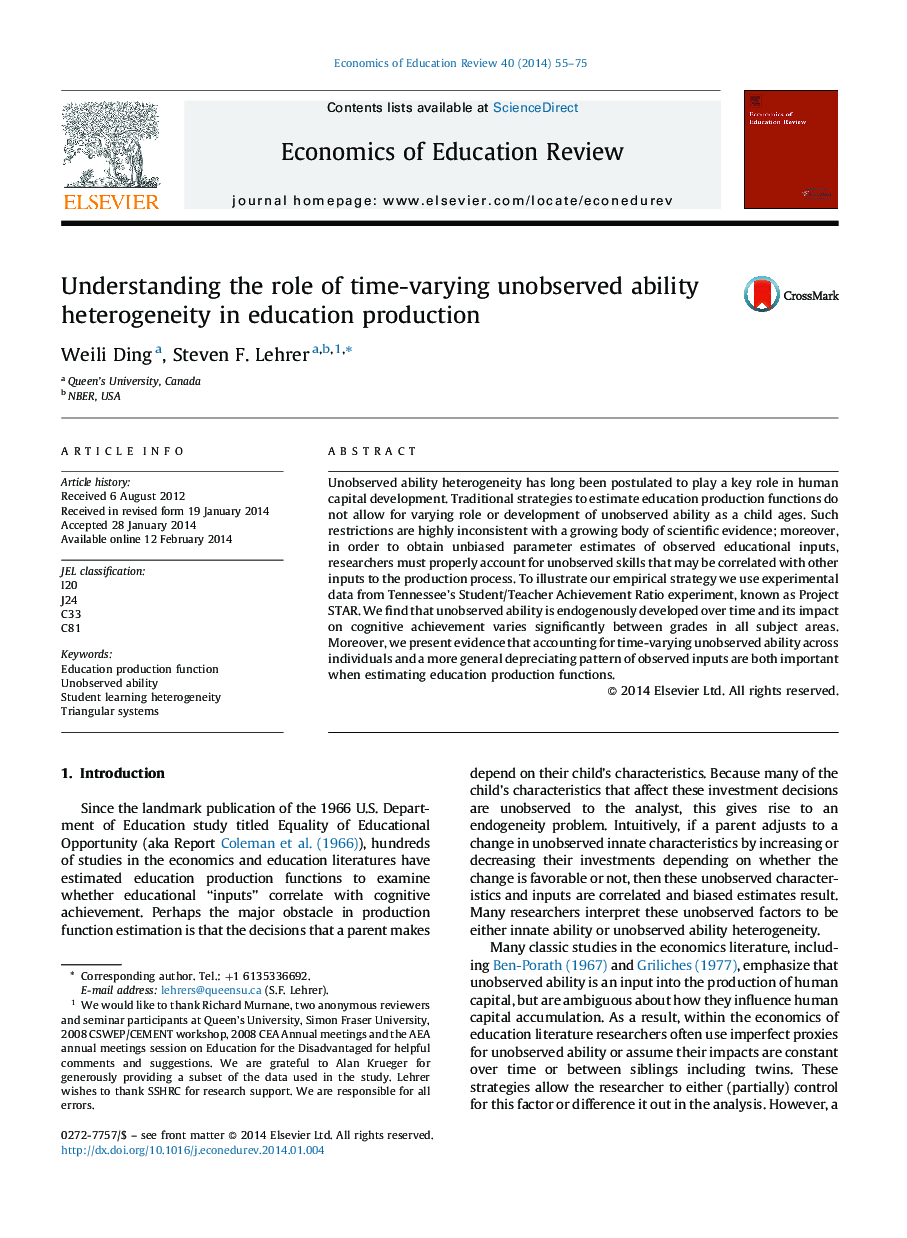| Article ID | Journal | Published Year | Pages | File Type |
|---|---|---|---|---|
| 354499 | Economics of Education Review | 2014 | 21 Pages |
•A new method to estimate education production functions is proposed.•We examine how unobserved ability influences test scores in different subjects.•We find that unobserved ability is endogenously developed over time.•The impacts of unobserved ability vary over the population particularly in math.•Empirical results are shown to be sensitive to the specification of the production function.
Unobserved ability heterogeneity has long been postulated to play a key role in human capital development. Traditional strategies to estimate education production functions do not allow for varying role or development of unobserved ability as a child ages. Such restrictions are highly inconsistent with a growing body of scientific evidence; moreover, in order to obtain unbiased parameter estimates of observed educational inputs, researchers must properly account for unobserved skills that may be correlated with other inputs to the production process. To illustrate our empirical strategy we use experimental data from Tennessee's Student/Teacher Achievement Ratio experiment, known as Project STAR. We find that unobserved ability is endogenously developed over time and its impact on cognitive achievement varies significantly between grades in all subject areas. Moreover, we present evidence that accounting for time-varying unobserved ability across individuals and a more general depreciating pattern of observed inputs are both important when estimating education production functions.
